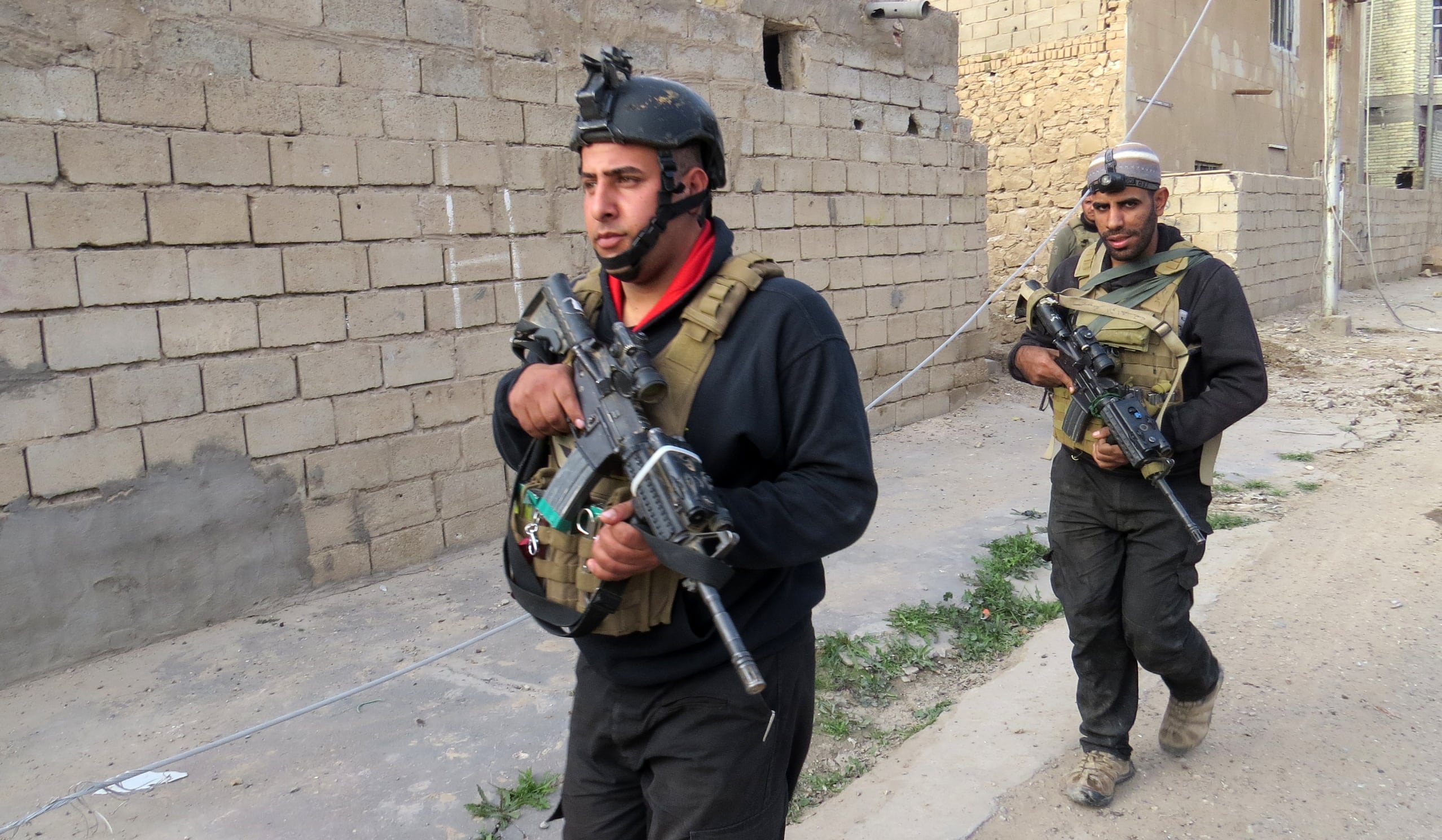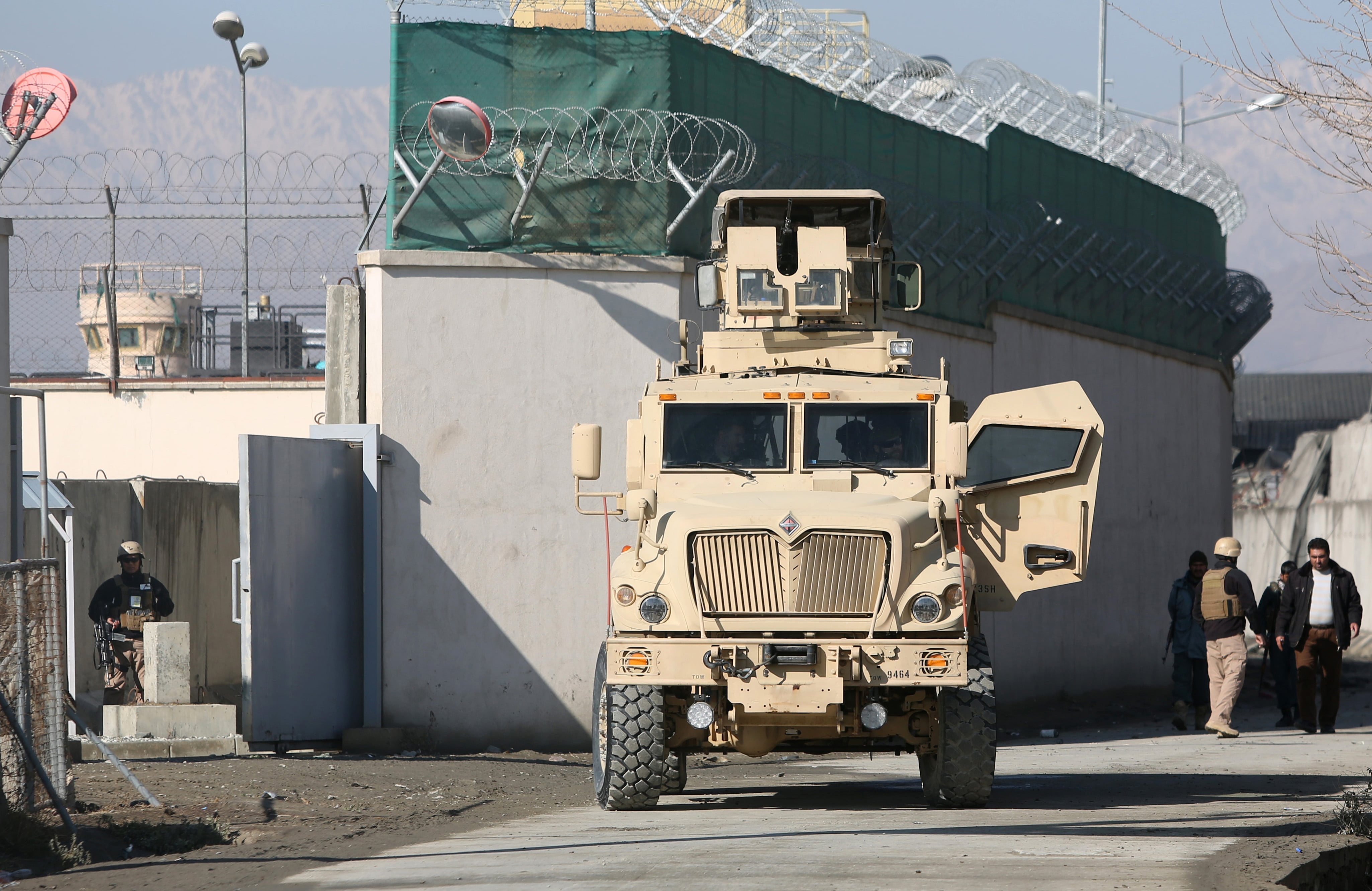Tuesday marks President Obama's final State of the Union speech, the commander in chief's annual address to the nation that in recent years has largely shied away from military and veterans issues.
During the height of the wars in Iraq and Afghanistan, President George W. Bush devoted the majority of his annual addresses to issues related to U.S. troops overseas and the ongoing fights. But with combat operations winding down, domestic concerns over employment and the economy have dominated Obama's speeches.
Last year, the president did not mention foreign policy or national security until he was more than 3,500 words into his address.
White House officials haven't hinted whether those issues will take a larger role in Tuesday's speech. In a video preview Jan. 5, Obama said his speech would focus on America's "capacity to change for the better, our ability to come together as one family and pull ourselves closer to the America we believe in."
Here's a look at some of the military and veterans issues most likely to be included in the event and the ones that will be left on the editing table:

Iraqi government forces and members of Iraq's elite counterterrorism service patrol a street in Ramadi on Thursday. Iraqi forces aided by U.S.-led airstrikes drove Islamic State militants out of the city center.
Photo Credit: AFP/Getty Images
IN: The Islamic State group
With several thousand U.S. forces on the ground in Iraq, the president can't avoid discussing the ongoing threat posed by the militant extremists and the instability in the Middle East.
In recent months, Obama has given several public speeches on American military efforts in the region, in an effort to rebut criticism from congressional Republicans on his strategy. Expect this speech to be an extension of those remarks, complete with promises to defeat and destroy the group.
OUT: Sequestration
The two-year budget deal finalized by lawmakers last fall doesn't completely do away with mandatory federal spending caps, but it does work around them for fiscal 2016 and 2017. That should mean fewer fights over defense funding and domestic tradeoffs for the rest of this year.
It also pushes the longer-term problems of spending caps into the next administration, giving Obama some relief as he outlines an ambitious lame-duck agenda.
IN: Veterans accomplishments
Despite lingering anger among lawmakers over a lack of progress and reforms at the Veterans Affairs Department, the administration has worked to promote its successes with post-military care and programs over the last seven years. Obama will likely use his State of the Union address to highlight some of those again.
Veterans homelessness is down more than one-third since 2010, and veterans unemployment has stayed below the national rate for four years running. Both are likely to get at least a mention.
OUT: Defense Department reforms
Members of the House and Senate Veterans' Affairs committees included defense acquisition reform and a military retirement overhaul in the fiscal 2016 National Defense Authorization Act, and have already begun discussions on similar medical and force structure reform efforts for this cycle.
But those goals have not garnered much attention in the White House, and Obama is unlikely to take up that congressional priority as his own this early in the year.

A U.S. military vehicle blocks a road to a logistics company near the site of a deadly suicide attack Jan. 4 in Kabul, Afghanistan. President Obama had made ending the war in Afghanistan one of his priorities.
Photo Credit: Rahmat Gul/AP
TOSS UP: Afghanistan
Last year, Obama declared in his address that "our combat mission in Afghanistan is over." But in recent days, seven U.S. service members have been killed in the ongoing mission, and a timeline for a full withdrawal of all military forces from the country is still unclear.
The president has made ending the war one of his top priorities in office. Whether he keeps his remarks about the U.S. mission there to praising the troops or delves into a serious look at the long-term ramifications may depend on how much he thinks he'll be able to achieve politically on the issue.
Leo covers Congress, Veterans Affairs and the White House for Military Times. He has covered Washington, D.C. since 2004, focusing on military personnel and veterans policies. His work has earned numerous honors, including a 2009 Polk award, a 2010 National Headliner Award, the IAVA Leadership in Journalism award and the VFW News Media award.




